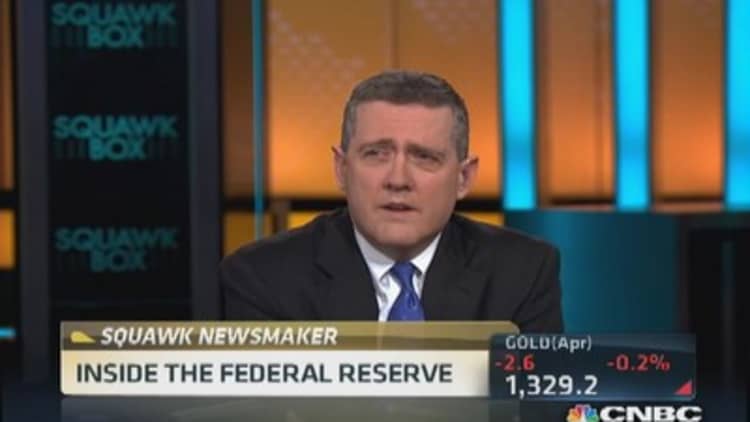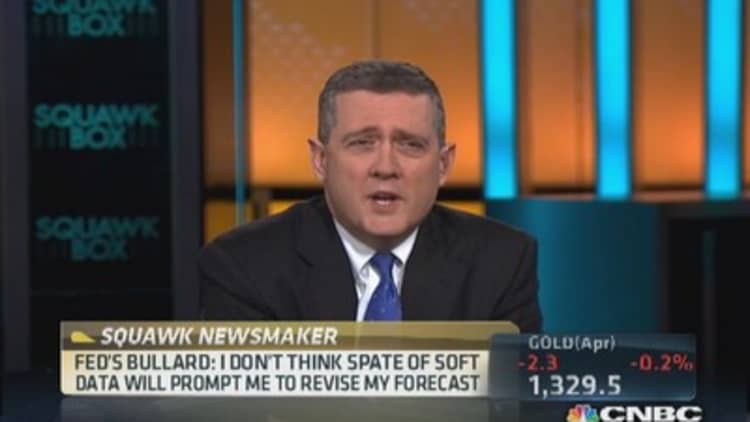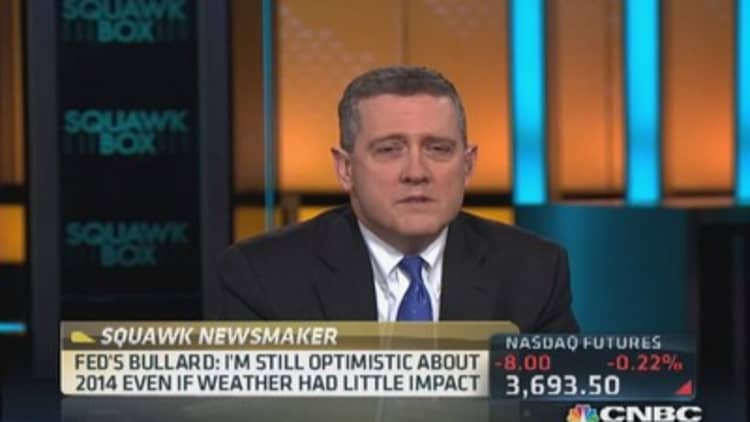
If the recent slowdown in the U.S. economy turns out to be more than just the weather, St. Louis Fed President James Bullard would still be unlikely revise his forecasts for the year.
"Even if you proved to me that it had nothing to do with the weather, I think the outlook would still be pretty good for 2014. I would still project that 2014 would have stronger GDP growth than 2013 did." Bullard told CNBC's "Squawk Box" on Friday.
Looking ahead to next week's February U.S. employment report, he predicted a faster drop in the jobless rate than other Fed policymakers are forecasting. He sees the jobless rate falling below 6 percent by the end of the year. He also believes the decline in the labor force participation rate—which generally refers to the percentage of people employed, or unemployed and actively looking for a work—is a trend, not a cyclical development.
The unemployment rate dipped slightly to 6.6 percent in January, even as nonfarm jobs grew a slower-than-expected 113.000

On housing, which has also seen what's perceived as major negative weather effects recently, Bullard said he thinks the real estate market will have a good year, though not as strong as in 2013.
Appearing on CNBC a day after Janet Yellen's ironically weather-delayed appearance before the Senate Banking Committee, Bullard echoed the Fed chair's comments. He agreed that weather is affecting the economy, but it's tough to tell how much because "it's hard to disentangle that's for sure." He added, "I don't think this spate of soft data ... is going to be enough for me to revise my forecast."
(Read more: Yellen: Cold weather may have hurt economy)

In her appearance Thursday, Yellen also reiterated that, if necessary, policymakers could slow down the pace of tapering on their massive bond-buying program, which has undergone to reductions of $10 billion a month in December and January. The central bank's current pace of monthly asset purchases stands at $65 billion.
Judging by the market reactions over the summer when the prospect of tapering surfaced and in September when the Fed unexpectedly held off, Bullard said, "That shows you, you have to be careful. If you're going to make a decision like that—which we can do, which we might do if the data pushes us in that direction—you have to be real sure you want to make that kind of a move."
This year, Bullard rotated out of his 2013 voting slot on the central bank's policy-setting Federal Open Market Committee.
—By CNBC's Matthew J. Belvedere. Follow him on Twitter @Matt_SquawkCNBC.


